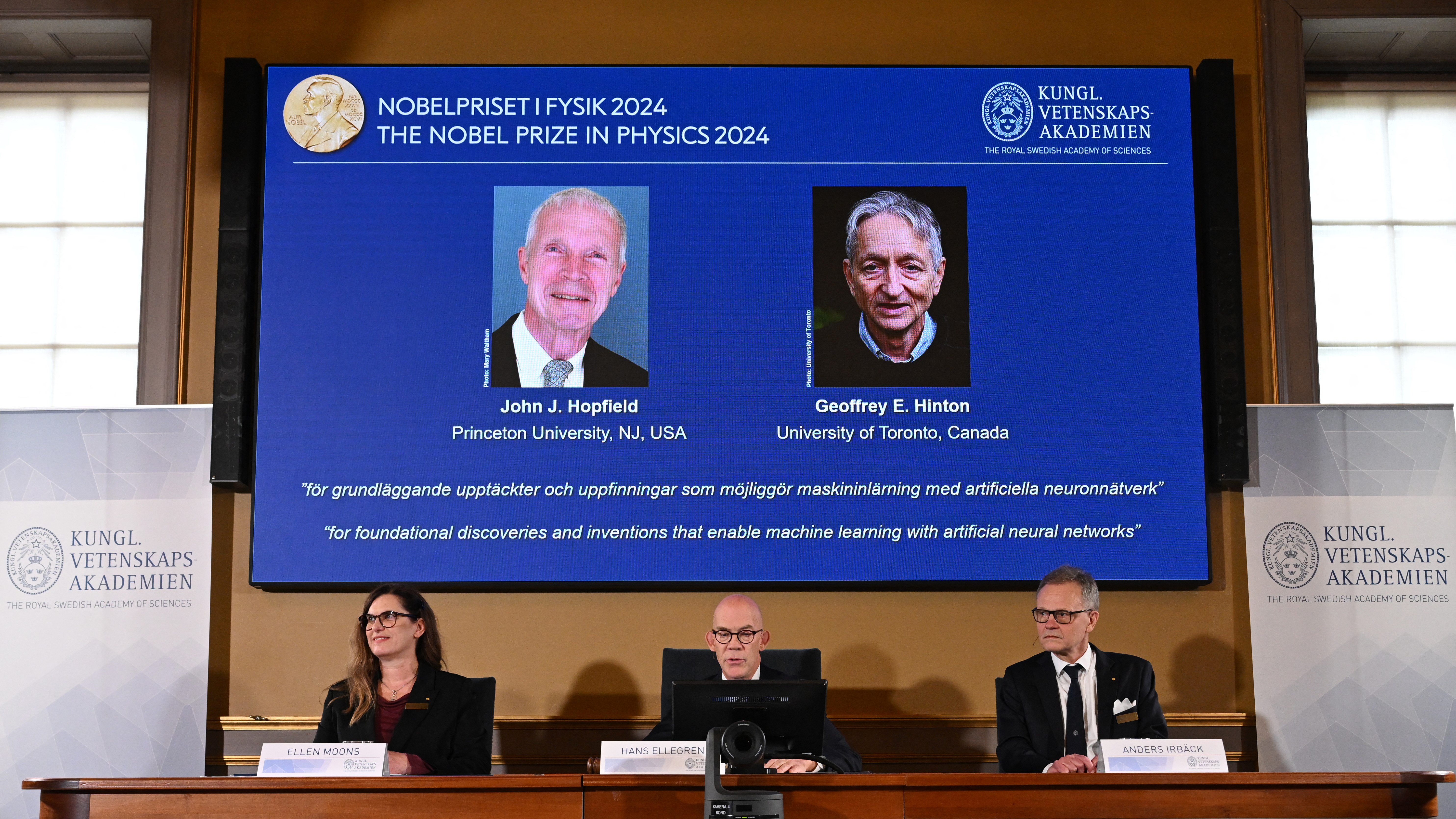'It will be comparable with the industrial revolution': Two legendary AI scientists win Nobel Prize in physics for work on neural networks
The researchers developed algorithms and neural networks that set the stage for today's AI technologies

The 2024 Nobel Prize in physics has been awarded to two scientists who laid the foundations for today's rapid advancements in artificial intelligence (AI).
John Hopfield and Geoffrey Hinton will share the 11 million Swedish krona ($1.03 million) prize for their work on artificial neural networks and the algorithms that enable machines to learn, the Royal Swedish Academy of Sciences, which selects the Nobel laureates in physics, announced Tuesday (Oct. 8).
"I'm flabbergasted, I had no idea this would happen, I'm very surprised," Hinton said by phone at a news conference. He was speaking from a hotel in California with poor internet and a bad phone connection. "I was going to get an MRI scan today, but I think I'll have to cancel that."
Hopfield, a professor in life science at Princeton University, was recognized for creating an associative memory network — which he first proposed as Hopfield network in 1982 — that can save and reconstruct images and other patterns from imperfect data.
Hinton, a computer scientist at the University of Toronto, used Hopfield's network in the early 2000s as the foundation for a method known as the "Boltzmann machine." Using tools from statistical physics, Hinton's produced neural networks that can spot patterns in data, enabling them to classify images or create new examples of the patterns it was trained on.
Related: Humanity faces a 'catastrophic' future if we don't regulate AI, 'Godfather of AI' Yoshua Bengio says
Taken together, the two advances were fundamental to the development of machine learning, which has since produced an explosion in new AI technologies and applications.
Sign up for the Live Science daily newsletter now
Get the world’s most fascinating discoveries delivered straight to your inbox.
"The laureates' work has already been of the greatest benefit. In physics we use artificial neural networks in a vast range of areas, such as developing new materials with specific properties," Ellen Moons, the chair of the Nobel Committee for Physics, said in a statement.
Commenting on the implications of his technology at the news conference, Hinton said that machine learning will "have a huge influence, it will be comparable with the industrial revolution. But instead of exceeding people in physical strength, it's going to exceed people in intellectual ability."
The researchers’ work represented a shift in AI research away from symbolic logic — which attempted to replicate features of human intelligence using symbols embedded inside logic systems — to deep learning networks. The latter uses layers of artificial neurons and vast quantities of data to loosely emulate processes in the human brain.
Deep learning has been around since the 1980s, but enormous energy, data, and computational requirements kept the technology in a nascent stage until 10 years ago, when computing advances sped it up.
"We have no experience of what it's like to have things smarter than us. It's going to be wonderful in many respects," he added, citing benefits to healthcare and improvements to productivity. "But we also have to worry about a number of possible bad consequences, particularly the threat of these things getting out of control."

Ben Turner is a U.K. based staff writer at Live Science. He covers physics and astronomy, among other topics like tech and climate change. He graduated from University College London with a degree in particle physics before training as a journalist. When he's not writing, Ben enjoys reading literature, playing the guitar and embarrassing himself with chess.










